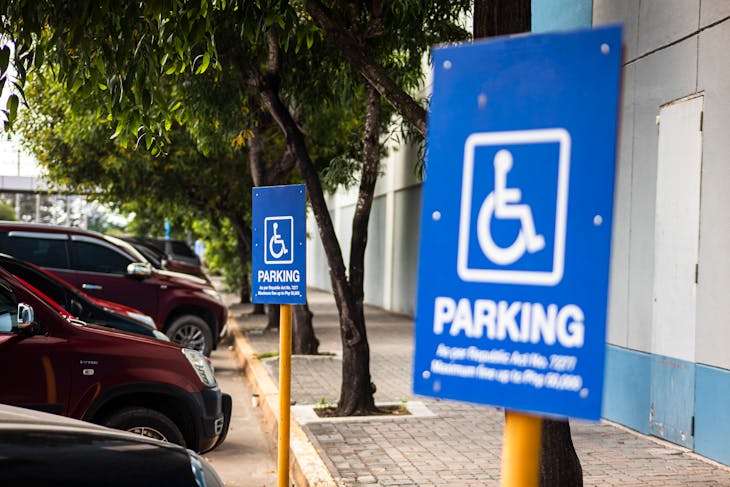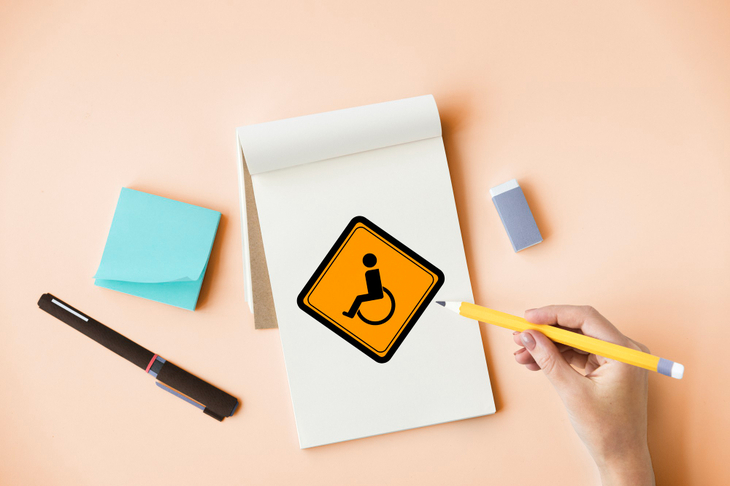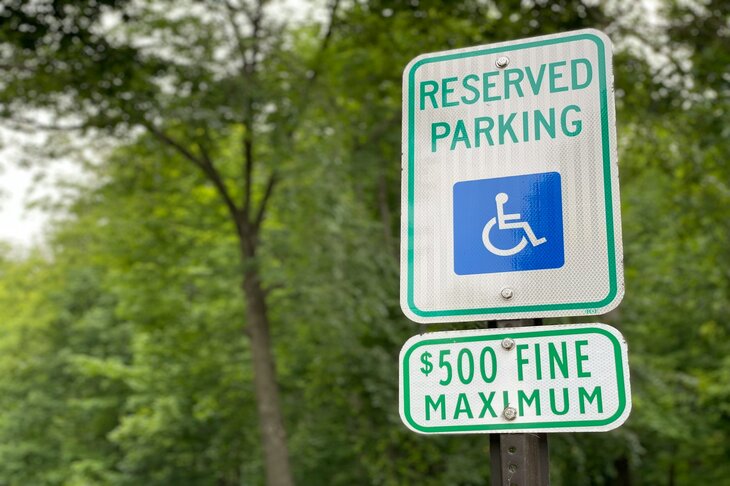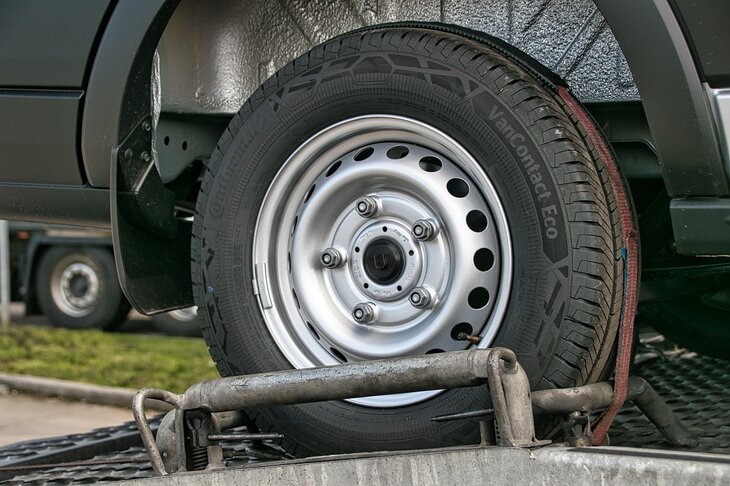Renewing your handicap permit in Minnesota doesn’t have to be a hassle. Whether you’re renewing online, by mail, or in person, this guide will walk you through every step, ensuring you get your permit renewed quickly and easily.
How to Renew a Handicap Permit in Minnesota
First things first—how do you renew your handicap permit in Minnesota? The process is not that hard, but knowing the steps in advance can save you time and stress.
Check Your Expiration Date:
Before anything else, make sure your handicap permit is close to its expiration date. Minnesota permits have a certain duration, so you’ll want to renew it before it expires.
Gather Required Documents:
To renew, you’ll need specific documentation. This usually includes your expired permit and a renewal application form. We’ll dive into the details of these documents later.
Choose Your Renewal Method:
In Minnesota, you can renew your handicap permit online, by mail, or in person. Each method has its benefits, so choose what works best for you.
MN Disability Parking Permit Renewal Requirements
To renew your handicap permit in Minnesota, you’ll need to meet certain requirements. These ensure that your eligibility for the permit remains valid.
- Medical Certification: You’ll need a medical certification from a healthcare provider to confirm that you still meet the criteria for a disability parking permit.
- Valid ID: Make sure your identification, such as a driver’s license or state ID, is up-to-date and valid.
- Completed Renewal Form: Whether you’re renewing online, by mail, or in person, you’ll need to fill out the renewal application form completely and accurately.
Minnesota Handicap Permit Renewal Process
So, what’s the exact process to renew your handicap permit in Minnesota? Let’s break it down step by step.
Online Renewal:
The easiest method for many is renewing online. Simply visit the Minnesota Department of Public Safety’s website, navigate to the handicap permit renewal section, and follow the prompts. You’ll be guided through each step, and your new permit will be mailed to you.
Mail-In Renewal:
If you prefer handling things by mail, you can send your completed renewal form, along with any required documents, to the address listed on the form. Make sure to do this well before your permit’s expiration date to avoid any lapses.
In-Person Renewal:
For those who prefer a more personal touch, you can visit your local DMV office to renew your handicap permit. Bring your documentation, and the staff will assist you with the renewal process on the spot.
What Forms Are Needed for Renewing a Handicap Permit in MN?
To renew your handicap permit in Minnesota, you’ll need a few key forms:
- Renewal Application Form: This is the primary document required for renewal. Make sure to fill it out completely and accurately.
- Medical Certification: Depending on your situation, you may need a healthcare provider to fill out a section of your application.
- Proof of Identity: Include a copy of your driver’s license or state ID if required.

How Often Do You Need to Renew a Handicap Permit in Minnesota?
In Minnesota, handicap permits typically need to be renewed every few years, depending on the type of permit you hold:
- Temporary Certificates: These permits usually last up to 6 months and may require a new medical certification each time you renew.
- Short-Term Certificates: These permits are valid for 7 to 12 months.
- Long-Term Disability Certificates: These permits are valid for 13 to 71 months.
- Permanent Permits: These are often valid for 6 years, but you’ll still need to renew them to ensure your information is current.
Minnesota Handicap Placard Renewal Fee
The good news is that renewing your handicap placard in Minnesota doesn’t come with a hefty price tag. In most cases, there’s no fee for renewing a permanent disability placard.
However, if you’re renewing a temporary placard or need a replacement, there might be a small fee involved. Always check with the Minnesota DPS to confirm the current fees, but here are the fees to this date:
- No Fee: This is only for a Permanent or Long-Term disability parking certificate.
- $5 Fee: This applies to a Temporary or Short-Term disability parking certificate.
MN Disability Parking Permit Renewal Eligibility
To renew your disability parking permit in Minnesota, you must still meet the eligibility requirements that qualified you for the permit initially. These generally include:
- Ongoing Disability: Your disability must still impact your ability to walk distances or require a mobility device.
- Medical Verification: A healthcare provider may need to confirm your condition, especially if renewing a temporary permit.
How to Replace an Expired Handicap Permit in Minnesota
If your handicap permit has already expired, don’t worry—you can still get it replaced. Here’s how:
- Submit a Renewal Application: Even if your permit has expired, you’ll follow the standard renewal process.
- Explain the Expiration: In some cases, you might need to explain why your permit expired to ensure there’s no lapse in coverage.
- Receive Your New Permit: Once processed, your new permit will be issued, and you can continue using accessible parking spaces without interruption.
Minnesota DMV Handicap Placard Renewal
The Minnesota DMV handles all handicap placard renewals, whether online, by mail, or in person. If you have any questions during the renewal process, your local DMV office is a great resource for assistance.
Minnesota Handicap Placard Renewal Online
Renewing your Minnesota handicap placard online is the simplest option for most people. It saves time and can be done from the comfort of your home.
- Visit the Minnesota DPS Website: Start by navigating to the official website. Look for the disability services section, where you’ll find the option to renew your handicap placard.
- Follow the Prompts: The site will guide you through each step, ensuring you provide all the necessary information.
- Submit and Wait: Once you’ve completed the process, submit your application and wait for your new placard to arrive in the mail.

Can I Renew My Minnesota Handicap Permit by Mail?
Absolutely! If you prefer, you can renew your handicap permit by mail. Just follow these steps:
- Complete the Renewal Form: Fill out the form with all required details.
- Include Required Documents: Don’t forget your ID and any medical certifications.
- Mail It In: Send your renewal package to the address listed on the form, and you’re all set!
Where Can I Renew My Minnesota Handicap Placard in Person?
If you prefer handling things face-to-face, visit your local Minnesota DMV office. The staff will assist you in completing the renewal process quickly and efficiently. Just bring your documents and be prepared for a short wait.
Minnesota Temporary Handicap Placard Renewal
If you have a temporary handicap placard, the renewal process is slightly different. Temporary permits are valid for up to six months, whereas short-term certificates are valid for up to 12 months. To renew:
- Obtain a New Medical Certification: Your healthcare provider will need to confirm that you still require the permit.
- Submit the Renewal Application: Follow the standard renewal process.
- Receive Your New Permit: Your renewed temporary placard will be issued for another period, depending on your condition.
How to Renew an Expired Handicap Permit in Minnesota
If your permit has expired, you’ll follow the same renewal process. The key is to act quickly to avoid any disruption in your access to disability parking spaces. Submit your renewal application, and you’ll have a new permit in no time.
MN Handicap Parking Permit Renewal Time Frame
Timing is everything when it comes to renewing your handicap parking permit in Minnesota. Aim to renew at least a month before your current permit expires. This will give you plenty of time to handle any issues that may arise during the renewal process.
Steps to Renew a Disability Parking Permit in Minnesota
Here’s a quick recap of the steps to renew your disability parking permit in Minnesota:
- Check Expiration Date: Ensure you’re renewing on time.
- Choose Renewal Method: Decide if you’ll renew online, by mail, or in person.
- Gather Documents: Have your ID, medical certification, and renewal form ready.
- Submit Application: Complete the process using your chosen method.
- Receive New Permit: Wait for your new permit to arrive and continue enjoying accessible parking.
Renewing Your Handicap Permit in Minnesota: Final Notes
Renewing your handicap permit in Minnesota doesn’t have to be a problem for you. Whether you choose to renew online, by mail, or in person, the process is designed to be as simple and stress-free as possible. Just follow the steps outlined in this guide, and you’ll be back on the road with your new permit in no time.
Remember, staying proactive about your renewal is key to avoiding any disruption in your access to disability parking spaces. By taking a few minutes now to renew your permit, you can enjoy peace of mind knowing that you have the proper authorization to continue using accessible parking spots across Minnesota. So, don’t wait—get started on your renewal today and keep your mobility and independence intact!
And if you want to renew your handicap parking permit in a hassle-free, easy, and safe way, we’ve got you covered!
Featured image by Pixabay





